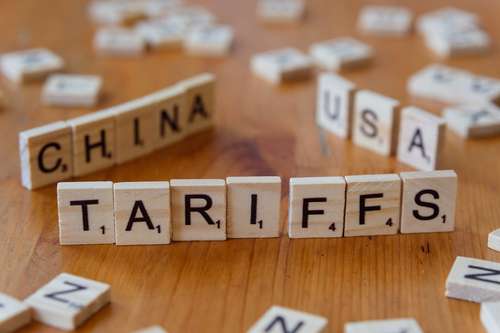While China has been dealing with a large COVID outbreak for the past two years, Premier Li Keqiang has issued a third warning in less than a week about the country's bad economic status.
On April 11, Keqiang told a meeting of local government leaders that the present economic situation necessitated an "increased sense of urgency" and the expeditious implementation of economic reform programs. He also expressed concern about the impact of the harsh lockdowns on businesses, citing the disruption of output and spending as an example.
Keqiang, on the other hand, urged all communities and government departments to "stay optimistic" while being alert in the face of unprecedented obstacles and downward pressure. According to Global Times, he also stated that the government must be determined in its response to unforeseen circumstances.
Economic researchers have warned that the unexpected surge in COVID-19 infections, as well as the ensuing draconian lockdown measures, have put downward pressure on key pillars of Beijing's economy, namely investment, and consumption.
COVID outbreak in China sparks fears of trade disruption
Li Keqiang has previously warned entrepreneurs about "unforeseen elements" that led to the country's economic instability and hardships. His comments were mirrored by Xiao Yaqing, China's Minister of Industry and Information Technology, who stated that China was experiencing logistical issues and rising commodity prices.
China's economy has slowed to a sluggish 4.8 percent year-on-year, as industrial cities remain closed to combat the biggest COVID spike in two years. Global trade and manufacturing are substantially threatened as a result of this.
Following a drop sparked by tougher curbs on the use of debt by China's enormous real estate industry, growth in the world's second-largest economy slowed to 4% in the third quarter, according to government data released Monday. As judged by other major economies, growth dipped to 1.3%from 1.4% in the previous quarter.
Industries impacted by the lockdown and Russia’s invasion of Ukraine
China's trading partners suffer as a result of the downturn, which lowers the demand for oil, steel, consumer products, food, and other imports. Oil prices have declined slightly following Russia's invasion of Ukraine, owing to anticipation that Chinese consumption will weaken.
The denial of access to Shanghai, a corporate hub with a population of 25 million people, and other industrial centers has hindered the movement of industrial goods. Production has been decreased or halted by global automakers and other manufacturers.
In a paper, Oxford Economics' Tommy Wu predicted that the interruption "would impact on activity in April and into May, if not longer." "This is likely to have a big influence on global supply networks," according to the report.
The Foxconn manufacturing sites, a major iPhone manufacturing operation, are located in the Zhengzhou Airport Economic Zone, where the Communist government has set severe lockdown restrictions for employees and residents.
For the length of the two-week lockdown, no vehicles or people will be allowed to leave due of the zero-tolerance stance on Coronavirus.
According to a local media report, officials are reportedly letting certain personnel to leave the lockdown checkpoints after presenting a negative PCR test data. People must update their contact information on the contact tracing program in addition to displaying their COVID test results.
The Shanghai port's operator claims that operations are normal. However, corporations claim that the volume of freight they handle has decreased. Access to Tianjin, a port and petrochemical hub east of Beijing; Shenzhen, a finance and tech hub near Hong Kong; and the manufacturing hubs of Changchun and Jilin in the northeast have all been halted.
Smaller cities have also imposed access restrictions, closed businesses, forced inhabitants to stay at home, and implemented other restrictions. Spring planting by Chinese farmers, who feed 1.4 billion people, could also be affected, according to economists. This would stifle economic growth and increase demand for imported wheat and other foods, potentially raising already high world costs.
Cities facing strict COVID protocols
It's worth noting that various Chinese cities have been subjected to stringent lockdown regulations since Coronavirus cases have been on the rise for the past two to three weeks, with Shanghai reporting the highest number of cases.
On Monday, the country's economic center recorded the first coronavirus death. According to authorities, the city had 2,417 confirmed coronavirus infections in the previous 24 hours, according to local media.
Shanghai, China's largest city, has been under heavy lockdown due to a daily caseload of more than 2,000 cases. The mainland's major financial hub has been under intense pressure to stop the epidemic, which is the largest since COVID-19 began in December 2019.
Stringent controls imposed in response to the unusual spike have caused widespread dissatisfaction among Shanghai's 26 million residents, who are unable to obtain basic necessities such as medical supplies.




